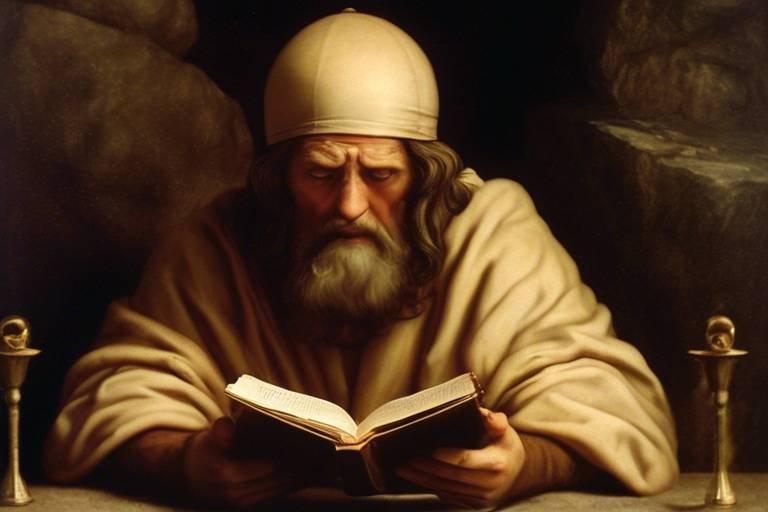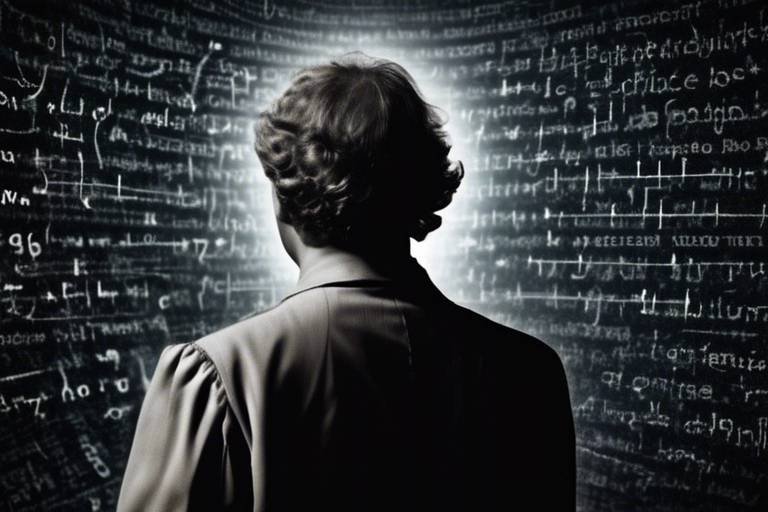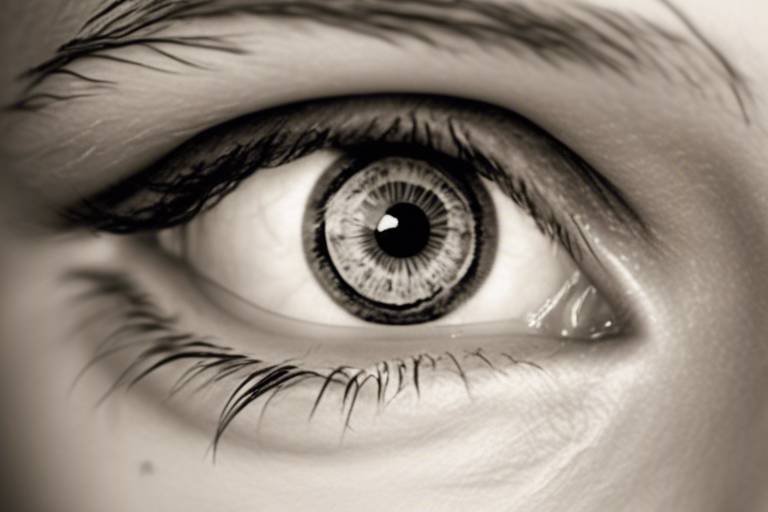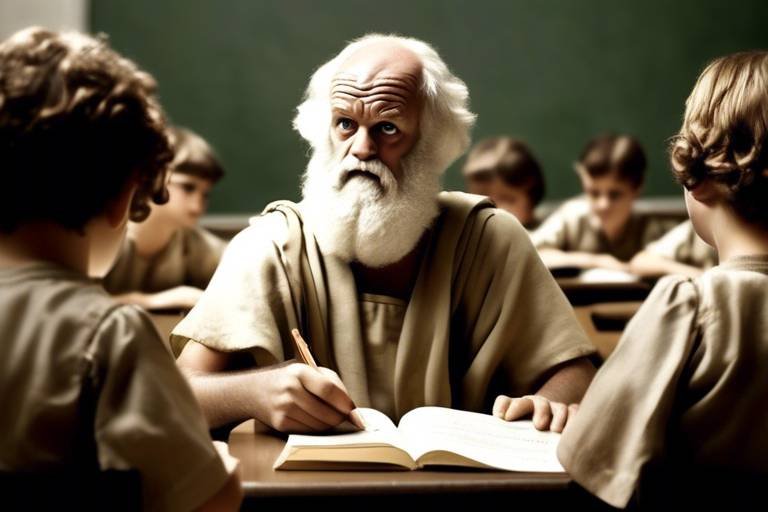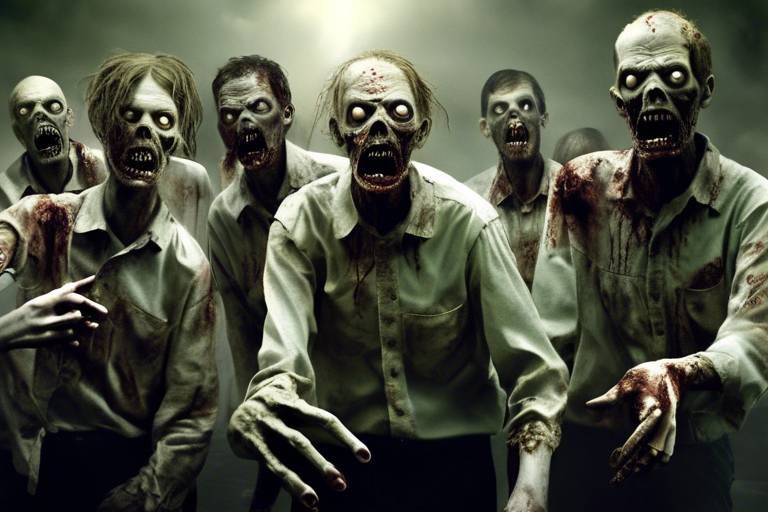Deleuze and the Philosophy of Difference
Gilles Deleuze, a towering figure in contemporary philosophy, invites us to rethink the very foundations of how we understand difference. Unlike traditional philosophies that often prioritize identity and sameness, Deleuze argues that difference is not just an absence of sameness but a fundamental principle that shapes our reality, identity, and experiences. Imagine a world where every moment is unique, where every experience is a new creation rather than a mere repetition of the past. This perspective not only challenges our conventional understandings but also opens up exciting avenues for exploring the nature of existence.
At the heart of Deleuze's philosophy is the assertion that difference is a dynamic force that drives change. It's like a river that flows and morphs, never the same at any two points in time. This idea encourages us to embrace the fluidity of life and to recognize that our identities are not fixed but are continually shaped by the differences we encounter. In this way, Deleuze's thought resonates deeply with our lived experiences, reminding us that every interaction, every thought, and every feeling contributes to a tapestry of existence that is rich, diverse, and ever-evolving.
Furthermore, Deleuze's exploration of difference extends beyond mere philosophical inquiry; it impacts various fields, influencing art, literature, and even politics. By embracing difference, we can cultivate a deeper understanding of creativity and innovation. Just as a painter uses different colors to create a masterpiece, our lives are enriched by the diversity of experiences and perspectives we encounter. This philosophy empowers us to challenge the status quo, question norms, and ultimately embrace the chaos of life as a source of strength and inspiration.
In summary, Deleuze's philosophy of difference is not just an academic concept; it is a call to action. It encourages us to see the world through a lens of possibility rather than limitation. By recognizing the power of difference, we can unlock new potentials within ourselves and society, fostering a culture that values diversity and creativity. As we delve deeper into Deleuze's ideas, we will uncover the profound implications that this philosophy has for our understanding of identity, experience, and the very fabric of reality.

Understanding Difference in Deleuze's Thought
Gilles Deleuze's philosophy pivots around the concept of difference, which he elevates to a fundamental principle that challenges the conventional understanding of identity and sameness. Unlike traditional philosophies that often emphasize static identities and fixed categories, Deleuze invites us to consider a world in constant flux, where difference is not merely a deviation but a vital force that shapes our understanding of existence. Imagine a vibrant tapestry, where each thread represents a unique difference, weaving together to create the rich fabric of reality. This perspective opens up a myriad of possibilities, allowing us to explore how our identities are not predetermined but are constantly evolving through interactions and experiences.
At the heart of Deleuze's thought is the idea that difference is productive. Unlike the mere absence of sameness, difference is a dynamic process that generates new meanings and identities. In this framework, sameness is seen as a limiting construct that stifles creativity and growth. Deleuze argues that by embracing difference, we can break free from the constraints of traditional categories and explore a more nuanced understanding of ourselves and the world around us. This shift in perspective encourages us to ask: What if our identities are not fixed but are instead fluid and shaped by our experiences?
In exploring Deleuze's interpretation of difference, it becomes clear that he is not merely advocating for a rejection of identity; rather, he is proposing a reimagining of it. He posits that identity emerges through a process of differentiation, where each new experience adds layers to our understanding of who we are. This process is akin to a river flowing through a landscape, constantly reshaping its banks and carving new paths. As we navigate through life, our identities are continuously molded by the differences we encounter, leading to a rich tapestry of selfhood that is always in the making.
Moreover, Deleuze's approach to difference emphasizes the importance of context. He suggests that our identities cannot be understood in isolation; they are deeply interwoven with the cultural, social, and historical contexts in which we exist. This interconnectedness highlights how differences are not just personal but are also collective, shaped by the myriad influences that surround us. For instance, consider how different cultural backgrounds can lead to diverse expressions of identity, each influenced by the unique experiences and histories of individuals. In this light, difference becomes a source of strength, fostering a more inclusive understanding of identity that celebrates diversity rather than suppresses it.
In summary, Deleuze's philosophy of difference challenges us to rethink our understanding of identity, encouraging us to embrace the fluidity and dynamism of existence. By recognizing that difference is not merely a deviation from the norm but a vital force that shapes our reality, we open ourselves to a richer, more complex understanding of ourselves and the world. As we engage with Deleuze's thought, we are invited to explore the endless possibilities that arise from embracing difference, ultimately leading to a more profound appreciation of the intricate tapestry of life.

The Role of Repetition
Repetition, in the context of Gilles Deleuze's philosophy, is not merely about doing the same thing over and over; it’s a profound mechanism through which difference emerges and evolves. Imagine a river: while the water flows in a constant stream, each drop is unique, shaped by the rocks, the banks, and the environment it travels through. Just like this river, repetition in Deleuze’s thought serves as a conduit for new identities and experiences to surface, challenging the static notions of sameness that often dominate traditional philosophies.
In Deleuze's framework, repetition is a vital force that allows for the emergence of novelty. It’s through repetitive actions that we can discover the subtle differences that lead to transformation. For example, consider the act of playing a musical piece. Each time a musician plays the same notes, they might introduce slight variations in tempo, emotion, or interpretation. This not only creates a unique performance each time but also allows the musician—and the audience—to experience the piece in a new light. Here, repetition becomes a creative act, a way to explore the depths of difference.
In his seminal work, Difference and Repetition, Deleuze articulates that repetition is a complex process that generates not only difference but also the potential for new ideas and realities. Rather than viewing repetition as a limitation, he invites us to see it as a fertile ground for creativity. This perspective shifts our understanding of how we interact with the world around us. Instead of seeing ourselves as fixed identities, we realize that we are constantly in flux, shaped by our interactions and the differences that arise from them.
To illustrate this, consider how trends in fashion or technology often emerge. A particular style or gadget may gain popularity, and as it is adopted by different people, it undergoes variations that reflect individual tastes and cultural contexts. This process of repetition—where the same idea is reinterpreted and reshaped—demonstrates how difference is not only inevitable but also essential for growth and evolution.
Deleuze introduces the concept of the virtual as a realm where potential differences exist before they are actualized. This idea is crucial for understanding how repetition can lead to change. The virtual is not simply a hypothetical space; it is a dynamic reservoir of possibilities that can manifest in the actual world. Think of it as a seed waiting for the right conditions to grow into a tree. In this sense, repetition acts as the nurturing environment that allows these seeds of potential to sprout into something tangible.
The actualization of difference is where the magic happens. It’s the moment when potential transitions into reality, and this process is deeply intertwined with repetition. As differences are repeated, they gain substance and can influence our perceptions and experiences. This interplay between the virtual and the actual is what makes Deleuze’s philosophy so compelling. It challenges us to reconsider how we understand change, identity, and the very fabric of reality itself.
In summary, repetition in Deleuze's philosophy is not a mere echo of the past; it is a vibrant, living process that shapes our identities and experiences. By embracing the role of repetition, we open ourselves to a world of possibilities, where every action carries the potential for transformation and new beginnings. So, the next time you find yourself repeating an action or thought, remember that you are engaging in a powerful dance of difference, one that can lead to unexpected and enriching outcomes.
- What is the significance of repetition in Deleuze's philosophy?
Repetition is crucial as it generates difference and allows for the emergence of new identities and experiences. - How does Deleuze's idea of the virtual relate to repetition?
The virtual is a realm of potentiality where differences exist before they actualize, and repetition helps bring those differences into reality. - Can you provide an example of repetition leading to difference?
In music, each performance of a piece can introduce subtle variations that create a unique experience, illustrating how repetition fosters creativity.
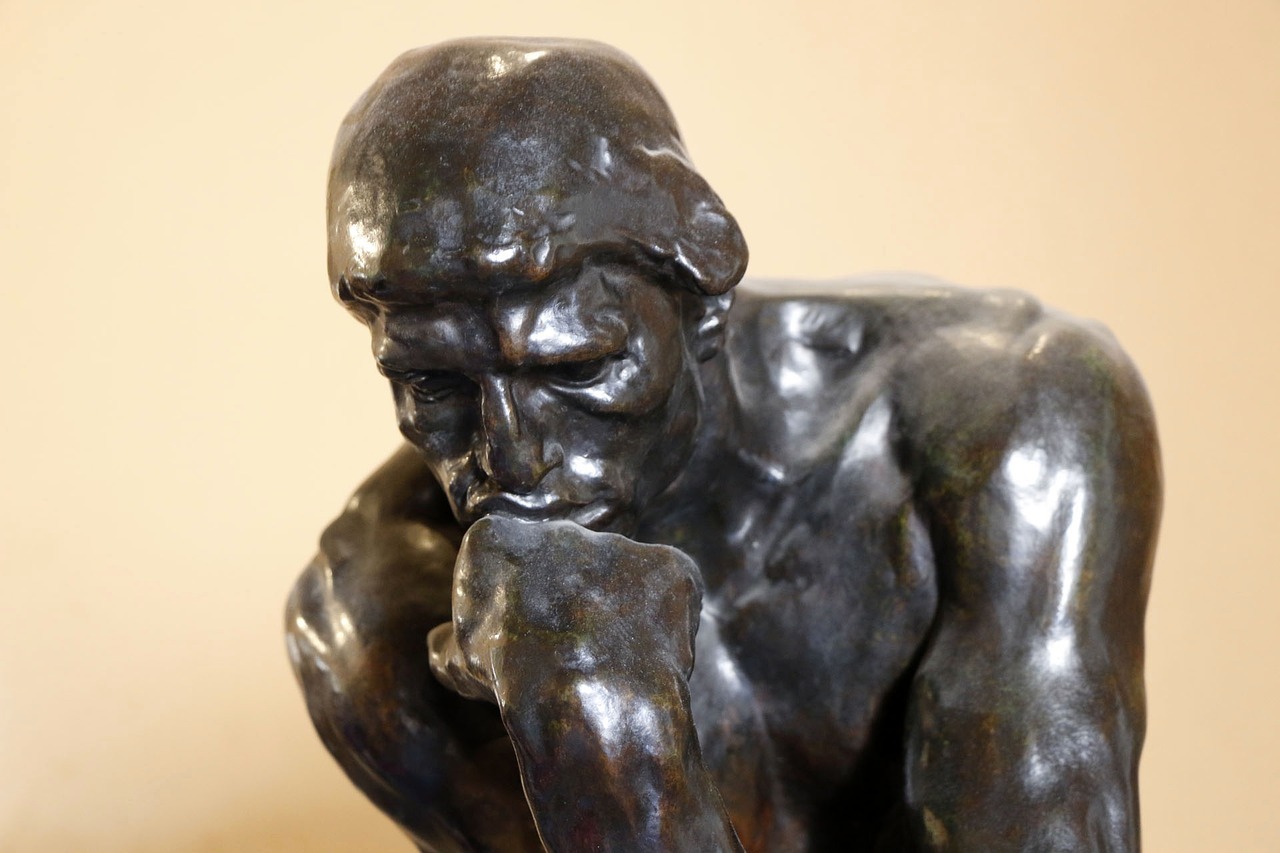
Difference and Repetition
In his seminal work Difference and Repetition, Gilles Deleuze challenges the conventional understanding of repetition, inviting us to reconsider its role in our lives and experiences. At first glance, repetition might seem like a monotonous echo of the same old patterns, a mere duplication of what has already occurred. However, Deleuze flips this notion on its head, proposing that repetition is not simply about sameness but is, in fact, a dynamic process that generates difference and novelty.
To grasp Deleuze's perspective, we need to understand that he views repetition as a catalyst for transformation. Instead of reinforcing the same identity or experience, repetition can create new meanings and possibilities. For instance, consider how a song can be played repeatedly. Each time it’s played, the listener might discover new layers of emotion, different interpretations, or even altered memories associated with it. This illustrates how repetition serves as a vehicle for difference, allowing us to experience the same thing in a multitude of ways.
Deleuze argues that this process of repetition is not just limited to art or music but permeates all aspects of life. Think about the way we learn; we often revisit concepts, but each encounter brings us closer to understanding and allows us to build upon our previous knowledge. This cyclical nature of learning exemplifies Deleuze's idea that repetition is a means of actualizing difference. It’s like a spiral staircase where each step gives us a new perspective, even though we are technically in the same place.
In a more philosophical context, Deleuze distinguishes between two types of repetition: repetition of the same and repetition of difference. The former is about the recurrence of the same identity or experience, while the latter emphasizes the emergence of new identities and experiences through the act of repetition. This distinction is crucial because it highlights that while we may encounter familiar situations, each encounter is a unique opportunity for transformation and growth.
Furthermore, Deleuze introduces the concept of the “virtual” to explain how differences can exist before they are actualized. The virtual realm is not a mere fantasy; it is a space of potentiality where all possibilities reside. When we engage in repetitive actions, we tap into this virtual realm, allowing differences to manifest in our realities. This interplay between the virtual and the actual is what makes repetition a powerful tool for change. It’s akin to a painter who uses the same brush strokes yet creates an entirely different masterpiece each time, revealing the infinite possibilities within the familiar.
In summary, Deleuze's exploration of difference and repetition invites us to see beyond the surface of our experiences. It challenges us to recognize that repetition is not a hindrance but a pathway to discovering the new and the unexpected. By embracing this philosophy, we can begin to appreciate the richness of our lives, understanding that every repeated moment holds the potential for transformation and reinvention.
- What is the main idea of Deleuze's philosophy of difference?
Deleuze's philosophy emphasizes that difference is fundamental to existence, shaping our identities and experiences rather than simply adhering to sameness. - How does repetition contribute to creating difference?
Repetition allows for the emergence of new meanings and identities, transforming familiar experiences into opportunities for growth and change. - What is the significance of the virtual in Deleuze's thought?
The virtual represents a realm of potentiality where differences exist before they become actualized in the world, playing a critical role in understanding creativity and change.

Difference and Repetition,
In his seminal work Difference and Repetition, Gilles Deleuze presents a radical rethinking of how we understand the concepts of difference and repetition. At first glance, repetition might seem like a straightforward notion—something that merely echoes or duplicates itself. However, Deleuze challenges this simplistic view by arguing that repetition is not just about sameness; it is a powerful force that generates difference and novelty in both thought and reality. In essence, he posits that every act of repetition carries with it the potential for transformation, allowing for the emergence of new identities and experiences.
To illustrate this point, consider how a musical piece can be repeated multiple times. Each performance, although fundamentally the same piece, can evoke different emotions depending on the context, the performers, and the audience's state of mind. This is a perfect example of how repetition does not simply replicate; it reinvents and reinterprets, creating a unique experience each time. Deleuze's philosophy suggests that this process of repetition is essential for the unfolding of difference in our lives. It becomes a mechanism through which we can explore the complexities of existence, moving beyond fixed identities to embrace a more fluid understanding of being.
Deleuze further elaborates on the idea of repetition by distinguishing between two types: repetition of the same and repetition of the different. The former is what we typically recognize, where the same thing is repeated over and over again. In contrast, the latter is a more dynamic process, where each iteration introduces a new element, a new twist, or a new layer of meaning. This concept is crucial for grasping how Deleuze perceives the world as a constantly evolving tapestry of differences, rather than a static collection of identities. The interplay between these two forms of repetition allows for a rich exploration of how we engage with our surroundings and ourselves.
Moreover, Deleuze's exploration of difference and repetition has profound implications for understanding creativity and change. By embracing the idea that repetition can lead to difference, we begin to see how innovation arises not from a singular moment of inspiration but from a continuous process of iteration and transformation. This perspective empowers us to view our experiences and identities as fluid, shaped by the myriad of differences that emerge through our interactions with the world.
In summary, Deleuze's Difference and Repetition invites us to reconsider how we perceive identity and experience. It challenges us to recognize that repetition is not merely a mechanical process but a vital force that generates difference, creativity, and novelty. By understanding this dynamic interplay, we can better appreciate the complexities of our existence and the richness of the world around us.
- What is the main idea of Deleuze's philosophy? Deleuze's philosophy centers around the concepts of difference and repetition, emphasizing that reality is shaped by differences rather than fixed identities.
- How does Deleuze redefine repetition? He argues that repetition is not merely about sameness; it is a process that generates new differences and experiences.
- What implications does Deleuze's thought have for identity? Deleuze proposes that identity is fluid and constantly evolving, shaped by the differences encountered in life.
- How has Deleuze influenced contemporary philosophy? His ideas have significantly impacted fields such as post-structuralism and feminist theory, reshaping discussions around identity, power, and subjectivity.

Deleuze articulates his ideas on how repetition is not mere duplication but a process that generates difference and novelty in thought and reality.
This article explores the key concepts of Gilles Deleuze's philosophy, focusing on the idea of difference as a fundamental principle that shapes reality, identity, and experience.
This section delves into Deleuze's unique interpretation of difference, contrasting it with traditional notions of identity and sameness, emphasizing its role in shaping existence and knowledge.
Repetition is a crucial concept in Deleuze's philosophy, serving as a mechanism through which difference manifests. This section explains how repetition contributes to the creation of new identities and experiences.
In his seminal work Difference and Repetition, Deleuze articulates his ideas on how repetition is not mere duplication but a process that generates difference and novelty in thought and reality. At first glance, repetition might seem like a simple act of doing something over and over again, but Deleuze challenges this notion by suggesting that every act of repetition is infused with potential for change. Imagine listening to your favorite song multiple times; while the melody remains the same, each listen evokes different emotions and memories, highlighting how repetition can transform our experience.
Deleuze posits that repetition is inherently tied to the concept of difference. Rather than being static, repetition is a dynamic force that allows for the emergence of new identities and experiences. For instance, consider the way a child learns to speak. Each utterance is a repetition of sounds they have heard, yet with every attempt, they introduce slight variations that lead to the development of their unique voice. This interplay between repetition and difference is at the heart of Deleuze's philosophy.
Moreover, Deleuze distinguishes between two types of repetition: general repetition and singular repetition. General repetition refers to the predictable and uniform instances of recurrence, while singular repetition captures the unique, one-of-a-kind events that arise in specific contexts. This distinction is crucial because it emphasizes that not all repetitions yield the same outcomes; some can lead to profound transformations in our understanding of reality.
To further illustrate this idea, consider the following table that summarizes the differences between general and singular repetition:
| Type of Repetition | Characteristics | Outcome |
|---|---|---|
| General Repetition | Predictable, uniform, and consistent | Reinforces sameness |
| Singular Repetition | Unique, context-specific, and variable | Generates difference and novelty |
This understanding of repetition allows us to appreciate the complexities of change and identity. In Deleuze's view, the world is not a static entity but a vibrant tapestry woven from countless threads of difference. Each act of repetition contributes to this tapestry, allowing for the emergence of new patterns and forms. Thus, repetition is not merely about what has been done before; it is about how those past actions can resonate and evolve in the present.
Deleuze introduces the virtual as a realm of potentiality where differences exist before they actualize. This section explores the implications of the virtual in understanding change and creativity.
This part discusses how differences become actualized in the world, highlighting the dynamic interplay between the virtual and the actual in Deleuze's framework.
Deleuze's philosophy challenges conventional notions of identity, proposing that identity is fluid and constantly shaped by differences. This section examines the implications of this view for understanding selfhood.
Deleuze's ideas have significantly influenced various fields, including post-structuralism and feminist theory. This section outlines his contributions and their relevance in contemporary philosophical discourse.
This subsection highlights how Deleuze's emphasis on difference has informed post-structuralist thought, reshaping discussions around language, power, and subjectivity.
Feminist theorists have drawn on Deleuze's ideas to challenge traditional gender norms and explore the complexities of identity. This section discusses how his philosophy informs feminist discourse.
- What is the main idea of Deleuze's philosophy? Deleuze's philosophy centers around the concept of difference as a fundamental principle that shapes reality and identity.
- How does Deleuze view repetition? Deleuze sees repetition as a dynamic process that generates novelty and difference rather than mere duplication.
- What is the significance of the virtual in Deleuze's thought? The virtual represents a realm of potentiality where differences exist before they are actualized, playing a crucial role in understanding change and creativity.

Concept of the Virtual
Gilles Deleuze's concept of the virtual is a fascinating and often misunderstood aspect of his philosophy. To put it simply, the virtual is not merely a digital construct or a figment of our imagination; rather, it represents a realm of potentiality that exists alongside the actual. Imagine the virtual as an expansive landscape filled with countless possibilities, waiting to be realized. It's like a rich soil where seeds of ideas can sprout into various forms, but they remain dormant until the right conditions allow them to grow.
In Deleuze's view, the virtual contains all the differences that could emerge in reality, serving as a reservoir of potential identities and experiences. This idea stands in stark contrast to traditional philosophical notions that often prioritize the actual over the virtual. In fact, Deleuze argues that the actual is merely a manifestation of what is possible within the virtual. This means that every time we encounter something new, we are tapping into this underlying reservoir of potentiality, giving birth to fresh identities and experiences.
One of the most intriguing aspects of the virtual is its relationship with the actual. Deleuze suggests that the process of actualization is not a straightforward transition from potential to reality but rather a dynamic interplay between the two realms. Think of it as a dance where the virtual and the actual engage in a continuous dialogue, influencing and shaping one another. This interplay allows for the emergence of novelty and change, emphasizing that our understanding of reality is never static.
To illustrate this concept further, consider the following table that outlines the differences between the virtual and the actual:
| Aspect | Virtual | Actual |
|---|---|---|
| Nature | Potentiality | Realization |
| Existence | Exists as possibilities | Exists as concrete entities |
| Dynamic | Fluid and ever-changing | Fixed and stable |
| Influence | Shapes the actual | Embodies the virtual |
Understanding the virtual is crucial for grasping the broader implications of Deleuze's philosophy, particularly in relation to change and creativity. By recognizing that the virtual is a space where all possibilities reside, we can appreciate the richness of human experience and the myriad ways in which identities can be formed and reformed. This perspective encourages us to embrace uncertainty and fluidity, allowing for a more nuanced understanding of ourselves and the world around us.
Ultimately, the concept of the virtual challenges us to rethink our assumptions about reality. It invites us to consider how the unseen forces of potentiality influence our lives and how the act of creation is not just about bringing something into existence but also about recognizing the vast array of possibilities that lie just beneath the surface. In this way, Deleuze's philosophy opens up exciting avenues for exploring the nature of existence, identity, and the very fabric of reality.
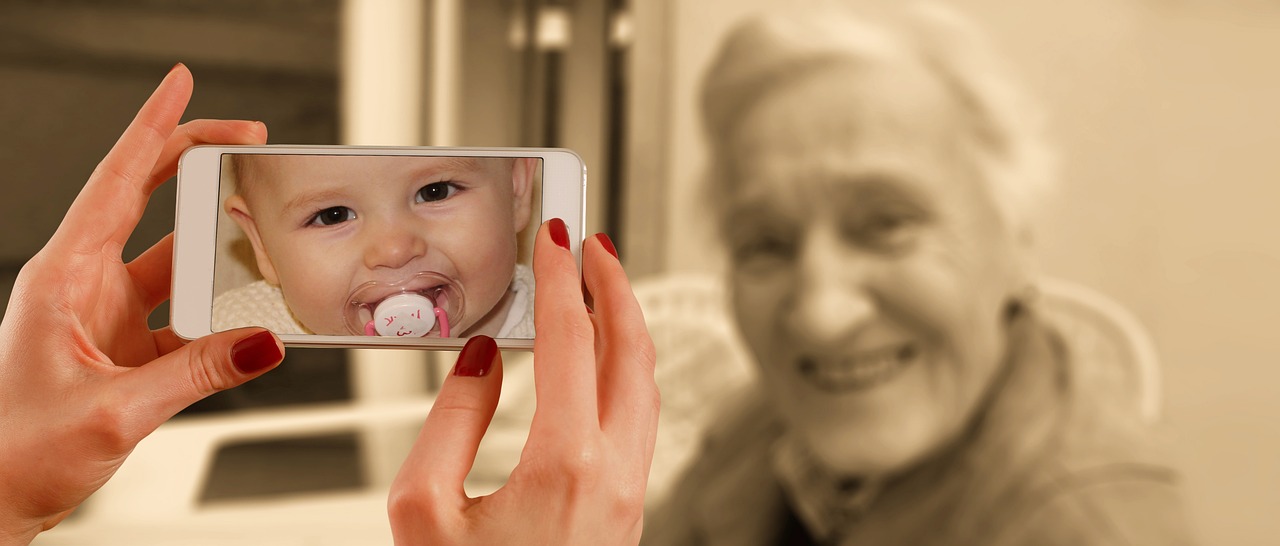
Actualization of Difference
In the realm of Gilles Deleuze's philosophy, the concept of actualization is pivotal to understanding how differences manifest in our world. Actualization is not simply about bringing something into existence; rather, it is a dynamic process that involves the interplay between the virtual and the actual. To grasp this, we must first recognize that the virtual is a reservoir of potentialities, a space where countless differences lie in wait, ready to emerge. Think of it like a vast ocean of possibilities, where each wave represents a different potential that can crash onto the shore of reality, shaping our experiences and identities.
When we talk about the actualization of difference, we are discussing how these latent potentials become tangible in our lives. This process is not linear or straightforward; it is more akin to a dance, where various elements interact, overlap, and sometimes clash. For instance, consider how a new idea can emerge from a conversation. Initially, the idea exists in a virtual state—unformed and abstract. As the conversation unfolds, different perspectives and experiences intermingle, leading to the actualization of a novel concept that was previously dormant. This is the essence of Deleuze's thought: difference is not a static entity but a fluid and evolving process.
Moreover, actualization is influenced by a myriad of factors, including social contexts, historical moments, and individual experiences. These influences act like the wind, guiding the waves of potentiality toward the shore of actualization. Deleuze emphasizes that this process is inherently creative, allowing for the emergence of new identities, ideas, and realities. In this sense, actualization is not merely the realization of what already exists; it is the birth of something entirely new, a transformation that reshapes our understanding of existence.
To illustrate this further, let’s consider the following table that outlines the relationship between the virtual and the actual in Deleuze's framework:
| Concept | Description |
|---|---|
| Virtual | A realm of potentialities, where differences exist before becoming actualized. |
| Actual | The manifestation of differences in the concrete world, shaped by various influences. |
| Actualization | The dynamic process through which virtual differences emerge into reality. |
Ultimately, the actualization of difference is a testament to the fluidity of existence. It challenges us to rethink our understanding of identity and reality. Instead of viewing ourselves as fixed entities, we can embrace the idea that we are constantly evolving, shaped by the differences we encounter and the experiences we live. This perspective opens up a world of possibilities, urging us to engage with the complexities of life and to celebrate the differences that make us unique.
- What is the main idea behind Deleuze's concept of difference?
Deleuze posits that difference is a fundamental principle that shapes reality, identity, and experience, contrasting traditional notions of identity and sameness. - How does actualization relate to identity?
Actualization highlights that identity is not fixed but fluid, constantly shaped by the differences we encounter in our lives. - What role does repetition play in Deleuze's philosophy?
Repetition serves as a mechanism through which difference manifests, contributing to the creation of new identities and experiences.

Implications for Identity
Gilles Deleuze's philosophy fundamentally reshapes our understanding of identity, presenting it as a fluid and dynamic construct rather than a fixed essence. In traditional views, identity is often seen as a stable core that defines individuals. However, Deleuze challenges this notion, proposing that identity is continuously influenced by differences and variations that emerge from our experiences and interactions with the world around us. This perspective shifts the focus from a singular identity to a multiplicity of identities that are constantly in flux.
One of the most striking implications of Deleuze's philosophy is the idea that identity is not something we possess, but rather something we perform. In this sense, identity becomes an ongoing process shaped by the differences we encounter. For instance, consider how our identities change in different social contexts—at home, at work, or among friends. Each setting brings forth different aspects of ourselves, highlighting how identity is a performance influenced by our surroundings and relationships.
Moreover, Deleuze’s view invites us to rethink the concept of selfhood. Instead of viewing ourselves as static beings, we can see ourselves as a constellation of experiences and differences. This perspective encourages a more inclusive understanding of identity, where individuals can embrace their complexities and contradictions. It opens the door for recognizing identities that exist outside conventional categories, paving the way for a richer, more diverse understanding of what it means to be human.
To illustrate this, let’s consider the implications of Deleuze's philosophy on various aspects of identity:
- Fluidity: Identity is not a solid entity but a flowing river, constantly reshaped by experiences.
- Multiplicity: Each person embodies multiple identities, which can shift based on context and interaction.
- Performance: Identity is an act, influenced by societal expectations and personal choices.
In essence, Deleuze's ideas encourage us to embrace the complexities of our identities and recognize the power of difference in shaping who we are. By understanding identity as a dynamic interplay of various influences, we can appreciate the richness of human experience and foster a more inclusive society.
1. How does Deleuze's concept of difference impact our understanding of identity?
Deleuze's concept of difference suggests that identity is not fixed but fluid, shaped by experiences and interactions. This challenges traditional views of a stable self.
2. Can identity be seen as a performance according to Deleuze?
Yes, Deleuze posits that identity is performed and influenced by social contexts, rather than being an inherent trait.
3. What are the practical implications of viewing identity as fluid?
Viewing identity as fluid allows for greater acceptance of diverse identities and encourages individuals to embrace their complexities.
4. How does this philosophy relate to contemporary discussions on gender and identity?
Deleuze's philosophy supports discussions around non-binary and fluid identities, challenging traditional gender norms and expanding the understanding of selfhood.

Deleuze's Influence on Contemporary Philosophy
Gilles Deleuze's philosophy has had a profound impact on contemporary thought, influencing various fields and sparking new discussions around identity, power, and creativity. His emphasis on difference as a fundamental principle challenges traditional philosophical frameworks that often prioritize sameness and identity. Instead of viewing identity as a static essence, Deleuze invites us to consider it as a fluid and dynamic process shaped by ongoing differences. This radical rethinking has paved the way for new perspectives in several disciplines.
One of the most significant areas influenced by Deleuze's philosophy is post-structuralism. In this context, scholars have embraced his ideas to critique established notions of meaning and authority. Deleuze's work encourages a more nuanced understanding of how language operates, emphasizing that meanings are not fixed but rather constantly in flux. This perspective has led to richer analyses of texts and cultural phenomena, allowing for a more diverse range of interpretations and insights.
Moreover, Deleuze's influence extends into feminist theory, where his concepts have been utilized to challenge traditional gender norms and explore the complexities of identity. Feminist theorists have drawn on Deleuze's ideas to argue for a more fluid understanding of gender, one that recognizes the interplay of various differences rather than adhering to binary classifications. By embracing the notion of difference, feminist discourse has expanded to include a broader spectrum of identities and experiences.
To illustrate the breadth of Deleuze's impact, consider the following table that summarizes key areas of influence:
| Field | Key Contributions |
|---|---|
| Post-Structuralism | Redefines meaning and authority; emphasizes fluidity in language and interpretation. |
| Feminist Theory | Challenges binary gender norms; promotes a fluid understanding of identity. |
| Art and Aesthetics | Encourages innovative approaches to creativity and artistic expression. |
| Political Theory | Influences discussions around power dynamics and resistance through difference. |
Deleuze's ideas have not only enriched academic discourse but have also found resonance in popular culture and activism. For instance, the concept of the rhizome, which he co-developed with Félix Guattari, has become a metaphor for non-hierarchical and decentralized networks of thought and action. This has inspired various movements that challenge traditional structures of power and authority, promoting a more inclusive and participatory approach to social change.
In conclusion, Deleuze's influence on contemporary philosophy cannot be overstated. His radical rethinking of difference has reshaped discussions across various fields, from post-structuralism to feminist theory, and continues to inspire new ways of thinking about identity, power, and creativity. As we navigate an increasingly complex world, Deleuze's insights remind us of the importance of embracing difference as a source of potential and transformation.
- What is the main idea behind Deleuze's philosophy?
Deleuze's philosophy centers on the concept of difference, arguing that it is a fundamental principle that shapes reality, identity, and experience. - How has Deleuze influenced feminist theory?
Feminist theorists have used Deleuze's ideas to challenge traditional gender norms and advocate for a more fluid understanding of identity. - What is the significance of the rhizome in Deleuze's thought?
The rhizome serves as a metaphor for non-hierarchical and decentralized networks, emphasizing interconnectedness and the fluidity of ideas.

Post-Structuralist Perspectives
When we dive into , we can't overlook the profound impact that Gilles Deleuze has had on this realm of thought. His emphasis on difference as a core principle has reshaped the landscape of contemporary philosophy, challenging traditional structures and ideologies. Unlike structuralism, which often seeks to find a stable meaning within texts and systems, post-structuralism embraces the idea that meaning is always in flux, constantly shaped by the interplay of differences.
Deleuze's philosophy encourages us to think beyond the confines of fixed identities and stable meanings. Instead, he invites us to explore the dynamic nature of existence, where identities are not merely given but are continually constructed and reconstructed through differentiation. This idea resonates deeply within post-structuralist thought, where the focus shifts from a search for absolute truths to an exploration of the multiplicity of meanings and experiences.
One of the key contributions of Deleuze to post-structuralism is his rejection of the binary oppositions that often dominate traditional philosophical discourse. For instance, rather than viewing concepts like male and female or truth and falsehood as rigid categories, Deleuze encourages us to see them as part of a fluid continuum. This perspective opens up a space for understanding identity as a process rather than a static state, aligning perfectly with post-structuralist views.
To illustrate this further, let's consider how Deleuze's thoughts have influenced the understanding of language within post-structuralism. Language, traditionally viewed as a tool for conveying fixed meanings, is reimagined by Deleuze as a dynamic force that shapes our perceptions of reality. In this view, language is not just a means of communication; it is a living entity that evolves and transforms, reflecting the differences inherent in our experiences.
Moreover, Deleuze's concept of rhizomatic thinking offers a powerful metaphor for understanding knowledge and identity within post-structuralism. Unlike a tree with a single trunk and branches, a rhizome is a network of interconnected nodes, symbolizing the non-hierarchical and decentralized nature of knowledge. This approach aligns with the post-structuralist rejection of singular narratives, allowing for a multitude of voices and perspectives to coexist and interact.
In summary, Deleuze's contributions to post-structuralism are invaluable. His focus on difference, fluidity, and the rejection of binary oppositions has paved the way for richer discussions around language, identity, and subjectivity. By embracing the complexities of existence, post-structuralist thought, fueled by Deleuze's insights, encourages us to question the status quo and explore the vibrant tapestry of human experience.
- What is post-structuralism? Post-structuralism is a philosophical movement that emerged in the mid-20th century, emphasizing the instability of meaning and the fluidity of identity.
- How does Deleuze influence post-structuralist thought? Deleuze's focus on difference and rejection of binary oppositions has reshaped discussions around language and identity, promoting a more dynamic understanding of these concepts.
- What is rhizomatic thinking? Rhizomatic thinking is a metaphor introduced by Deleuze to describe a non-hierarchical and interconnected approach to knowledge, contrasting with traditional, linear models.

Feminist Interpretations
Gilles Deleuze's philosophy, particularly his emphasis on difference and becoming, has profoundly impacted feminist theory, offering fresh perspectives that challenge traditional gender norms. Feminist theorists have embraced Deleuze’s ideas as a means to explore the complexities of identity, moving away from static notions of gender towards a more fluid understanding. This shift allows for a richer analysis of how identities are constructed and experienced in a constantly changing social landscape.
One of the key contributions of Deleuze to feminist thought is his rejection of binary oppositions. In a world that often categorizes experiences into rigid boxes—such as male/female, heterosexual/homosexual—Deleuze’s philosophy invites us to consider the spectrum of identities that exist beyond these limitations. Feminists have utilized this framework to articulate the idea that gender is not a fixed attribute but rather a dynamic process shaped by cultural, social, and historical contexts. This perspective encourages us to think about gender as something that is constantly in flux, influenced by various factors, including race, class, and sexuality.
Moreover, Deleuze's concept of becoming resonates deeply with feminist movements. The idea that individuals are always in a state of transformation aligns with feminist goals of empowerment and self-definition. Feminist theorists argue that embracing the process of becoming enables individuals to resist oppressive structures and assert their identities in ways that are authentic and self-determined. By focusing on the fluidity of identity, feminists can challenge the societal norms that dictate how individuals should behave based on their gender.
In addition to these theoretical insights, Deleuze's work also emphasizes the importance of affects and desires in shaping identity. Feminist interpretations of Deleuze highlight how emotions and desires can serve as catalysts for change, enabling individuals to forge connections and create communities that transcend traditional gender roles. By understanding desire as a creative force, feminists can explore how personal and collective experiences of desire can challenge normative identities and foster new ways of being.
To illustrate the intersections of Deleuzean thought and feminist theory, consider the following table that summarizes key concepts:
| Deleuzean Concept | Feminist Interpretation |
|---|---|
| Difference | Gender as a spectrum rather than a binary |
| Becoming | Empowerment through self-definition and transformation |
| Affects and Desires | Emotional connections as a means of challenging norms |
In conclusion, the integration of Deleuze's philosophy into feminist discourse has opened up new avenues for understanding identity. By embracing the concepts of difference and becoming, feminists can articulate a vision of gender that is inclusive, dynamic, and reflective of the complexities of lived experiences. This philosophical framework not only enriches feminist theory but also empowers individuals to navigate their identities in a world that often seeks to confine them within rigid categories.
- How does Deleuze's philosophy differ from traditional feminist theories?
Deleuze's philosophy emphasizes fluidity and difference, challenging the static identities often found in traditional feminist theories. - What is the significance of the concept of becoming in feminist thought?
The concept of becoming allows for a dynamic understanding of identity, encouraging empowerment and self-definition. - Can Deleuze's ideas be applied to other areas of social theory?
Yes, Deleuze's emphasis on difference and multiplicity has influenced various fields, including post-structuralism, queer theory, and critical race theory.
Frequently Asked Questions
- What is the main idea behind Deleuze's philosophy of difference?
At its core, Deleuze's philosophy of difference challenges traditional views of identity and sameness. He argues that difference is not just a deviation from a norm but a fundamental principle that shapes reality, identity, and experience. This perspective encourages us to see the world as a dynamic interplay of differences rather than static identities.
- How does Deleuze define repetition?
Deleuze redefines repetition as a creative force rather than mere duplication. He posits that repetition allows for the emergence of new identities and experiences, suggesting that through repeated actions or events, differences are generated, leading to novelty in thought and reality.
- What is the concept of the virtual in Deleuze's work?
The virtual, in Deleuze's philosophy, refers to a realm of potentiality where differences exist prior to their actualization. This concept is crucial for understanding how change and creativity occur, as it highlights the dynamic possibilities that precede tangible outcomes in our experiences.
- How does Deleuze's philosophy impact our understanding of identity?
Deleuze's ideas propose that identity is not fixed but fluid, constantly shaped by differences. This challenges conventional notions of selfhood, suggesting that our identities are in a continuous state of becoming, influenced by the differences we encounter in our lives.
- In what ways has Deleuze influenced contemporary philosophy?
Deleuze's emphasis on difference has significantly impacted various fields, particularly post-structuralism and feminist theory. His ideas have reshaped discussions around language, power, and subjectivity, encouraging thinkers to explore the complexities of identity and the fluidity of social constructs.
- How do feminist theorists utilize Deleuze's concepts?
Feminist theorists have drawn on Deleuze's philosophy to challenge traditional gender norms and explore the complexities surrounding identity. His ideas provide a framework for understanding how differences in gender and sexuality can lead to new interpretations of identity and power dynamics.



